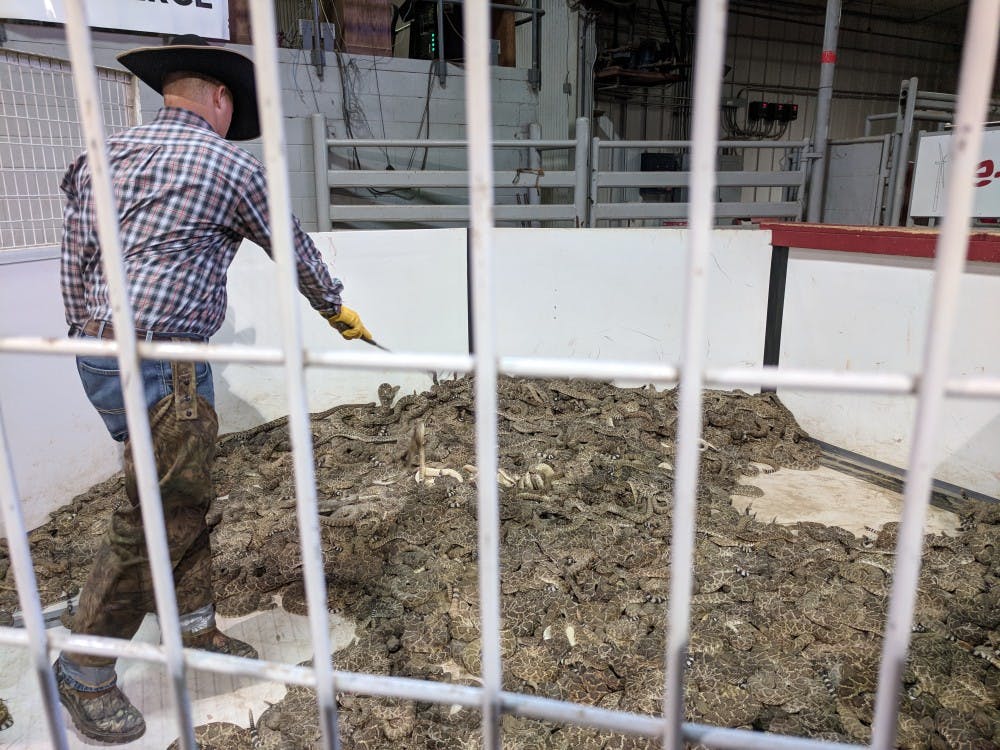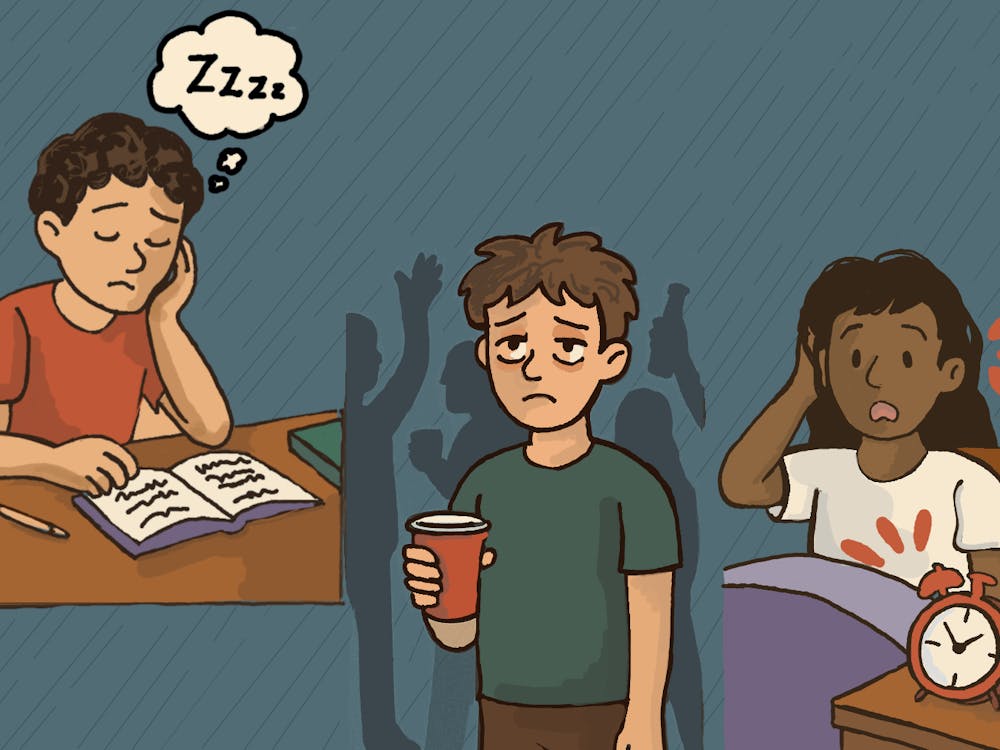Like many other college students, my friends and I headed south to find warmth during spring break. Less typically, however, we did not seek out any beaches — we drove to Sweetwater, Texas in order to experience the world’s largest Rattlesnake Roundup.
What is a Rattlesnake Roundup, exactly? Well, 60 years ago a small town in western Texas had a rattlesnake problem. In an attempt to control the area’s rattlesnake overpopulation, some locals organized a festival encouraging visitors and townsfolk alike to venture into the wilderness and catch some snakes. This tradition was repeated year after year, continuing to this day.
Although the Roundup is now a lot more sophisticated and large-scale than it used to be — over 4,000 pounds of rattlesnake had been caught by noon on the first day of this year’s festivities — it was clear from my short visit that it is still undoubtedly a small town affair.
Growing up in a close-knit community myself, I am all too familiar with life in small town. I hail from Tillamook County in Oregon, which holds more cows than people — my high school mascot was aptly named the Cheesemakers. Out of each graduating class of over 100 students, you only need to use one hand to count the number of students leaving the state of Oregon for college. Of course, on the flip side, if you ever need to find someone in particular, all you need to do is go to the grocery store and you’re sure to run into them.
For people unfamiliar with them, small towns are hard to understand or even scary. They are characterized as backwards, close-minded and simply lesser, in some sense. There is no doubt that small town life is different from that of the suburbs or a city — the same group of 10 people seem to somehow run everything, everyone knows everyone and “success” does not necessitate a college degree or six-digit salary. But one thing that I think everyone can understand is the absolute magic that many small communities are able to produce.
In Sweetwater, this magic is the Rattlesnake Roundup. The day before the event officially began, my friends and I attended the opening parade and the Miss Snake Charmer Pageant — which had a disappointing lack of snakes. At the parade, all of the town’s businesses, teams and students pulled out all the stops to show of their little slice of Texas off to the world. But it was at the pageant that the Sweetwater natives’ bonds were on full display.
From the sounds of the audience throughout the pageant, it was very clear that a majority of the contestants were homegrown stars. The women talked about growing up in the community, volunteering at local dance studios and running every club imaginable at their high school. It reminded me a lot of my hometown.
If I’m honest, I didn’t love Tillamook when I lived there — most of my appreciation for my upbringing has come in retrospect. I associated the area with a lack of opportunity and chose to focus on this aspect of small town life as opposed to the uniquely positive community that came with it.
Now, I look back at traditions like Charity Drive, in which a high school with less than 700 kids comes together with the community for 10 days to raise almost $200,000 for a children’s hospital and local charities and scholarships, with complete awe. If that event isn’t extremely powerful, then I don’t know what is.
Rattlesnake Roundup — and Sweetwater as a whole — reminded me of the greatest aspects of growing up and living in a small town. Perhaps because I’m moving to the big city of Chicago after graduation, I have found myself nostalgically longing for those types of community bonds in recent weeks.
Sure, there are glimpses of it in college, especially now that I am a fourth year and have frequented many of the same places a great deal throughout my time in Charlottesville. But there is an undeniable difference between a community built for permanence and a community with an inherent relationship to transition and change.
However, that being said, I am extremely thankful that I have had the chance to experience and become a part of this different type of community, for it has allowed me to better understand and appreciate my roots in a manner that otherwise may not have been possible. It’s easy to take what you currently have for granted, so when you no longer have it, you may find that you miss it more than you expect.
Of course, that golden rule doesn’t apply in all situations — something tells me Sweetwater might not miss its rattlesnakes.







